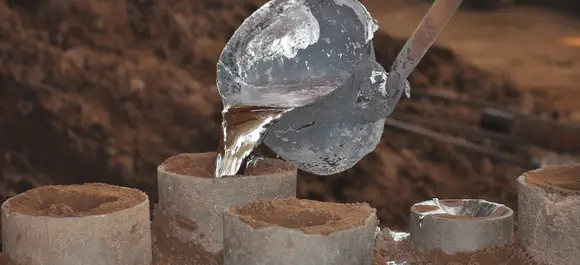Mobile:+86-311-808-126-83
Email:info@ydcastings.com
aluminum castings
Aluminum Castings An Overview of Their Importance and Applications
Aluminum castings are an essential segment of the manufacturing industry that have gained significant traction due to their lightweight, durability, and excellent corrosion resistance. The demand for aluminum castings has surged as various industries look for high-performance materials that contribute to energy efficiency and lower operational costs. This article explores the significance, processes, and applications of aluminum castings.
Understanding Aluminum Castings
Aluminum casting involves pouring molten aluminum into a mold to create a desired shape. Once cooled, the mold is removed, leaving behind a finished product. This process can be used to produce complex geometries that are challenging or impossible to achieve with other manufacturing techniques. The versatility of aluminum casting allows manufacturers to tailor the material properties by adjusting the alloy composition and casting processes.
Advantages of Aluminum Castings
One of the main advantages of aluminum is its lightweight nature, which makes it valuable for applications where reducing weight is a priority. Furthermore, aluminum exhibits excellent thermal and electrical conductivity, making it suitable for use in electrical components and heat exchangers.
Another significant benefit is its resistance to rust and corrosion. Aluminum naturally forms a protective oxide layer, which helps it withstand exposure to harsh environmental conditions. This property is particularly beneficial in the automotive and aerospace industries, where components are often subjected to extreme weather conditions.
Additionally, aluminum castings have good strength-to-weight ratios, and when compared to steel, aluminum is much lighter, leading to improved fuel efficiency in vehicles. This lightness is a driving factor in the ongoing shift towards aluminum in transportation, where manufacturers are increasingly looking at ways to reduce overall vehicle weight for better performance and lower emissions.
Casting Processes
Several methods are employed to create aluminum castings, each suited for different applications
aluminum castings

1. Sand Casting This traditional method involves creating a mold from sand and then pouring molten aluminum into it. Sand casting is cost-effective and suitable for large and small production runs.
2. Die Casting This process uses high pressure to inject molten aluminum into a steel mold, resulting in precise, high-quality parts. Die casting is ideal for high-volume production and is widely used in automotive and consumer products.
3. Investment Casting Also known as lost wax casting, this method allows for highly detailed parts with excellent surface finish. Investment casting is used in industries where precision and accuracy are critical, such as aerospace and medical devices.
4. Conditional Casting A newer method that combines several casting techniques, providing better control of the solidification process. This technique enhances the mechanical properties of the castings.
Applications of Aluminum Castings
Aluminum castings find applications across various industries. In the automotive sector, they are used for engine blocks, transmission housings, and wheels, among others. Their lightweight properties contribute to enhanced fuel efficiency and performance.
In the aerospace industry, aluminum castings are utilized for manufacturing aircraft components, including engine mounts and fuselage parts. The excellent strength-to-weight ratio of aluminum is crucial in aircraft design.
The electronics industry also benefits from aluminum castings for thermal management solutions in devices like heat sinks. Furthermore, in the construction sector, aluminum castings are increasingly being used for window frames, door frames, and other architectural applications due to their aesthetic appeal and durability.
Conclusion
Aluminum castings represent a critical link between design and functionality across numerous industries. As technology advances and the demand for lightweight, durable materials continues to rise, aluminum castings are poised to play an even more significant role in the future of manufacturing. Their versatility and array of advantages make them an invaluable component in numerous applications, driving innovation and efficiency in various sectors.
-
Why Should You Invest in Superior Pump Castings for Your Equipment?NewsJun.09,2025
-
Unlock Performance Potential with Stainless Impellers and Aluminum End CapsNewsJun.09,2025
-
Revolutionize Your Machinery with Superior Cast Iron and Aluminum ComponentsNewsJun.09,2025
-
Revolutionize Fluid Dynamics with Premium Pump ComponentsNewsJun.09,2025
-
Optimizing Industrial Systems with Essential Valve ComponentsNewsJun.09,2025
-
Elevate Grid Efficiency with High-Precision Power CastingsNewsJun.09,2025











